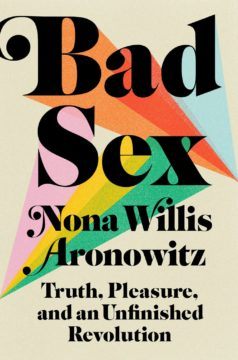Julia Case-Levine at Bookforum:
 For Ellen Willis, feminism represented the possibility of being defiantly, boldly herself. Willis wasn’t so concerned with fitting into a single political camp; she loved, for example, rock and roll, even songs that had outrageously misogynistic lyrics. “Music that boldly and aggressively laid out what the singer wanted, loved, hated,” she wrote in an essay about bands such as the Sex Pistols and Ramones, “challenged me to do the same.” Meanwhile, she was bored by the “wimpiness” of milder, mellower, bands, including those that were explicitly feminist. Feminism allowed her to sort through these messy and incongruous pleasures freed from shame; to relish when her unruly feelings revealed a peculiar, unique kernel of self.
For Ellen Willis, feminism represented the possibility of being defiantly, boldly herself. Willis wasn’t so concerned with fitting into a single political camp; she loved, for example, rock and roll, even songs that had outrageously misogynistic lyrics. “Music that boldly and aggressively laid out what the singer wanted, loved, hated,” she wrote in an essay about bands such as the Sex Pistols and Ramones, “challenged me to do the same.” Meanwhile, she was bored by the “wimpiness” of milder, mellower, bands, including those that were explicitly feminist. Feminism allowed her to sort through these messy and incongruous pleasures freed from shame; to relish when her unruly feelings revealed a peculiar, unique kernel of self.
But Aronowitz’s feminism, on the other hand, demands adherence—apparently to sexual adventurousness and disdain for all things vanilla. Watching her try to fit this bizarre standard can be tedious. In one chapter, a lesbian friend’s criticism of straight couples makes Aronowitz feel “exposed and uncool.”
more here.
